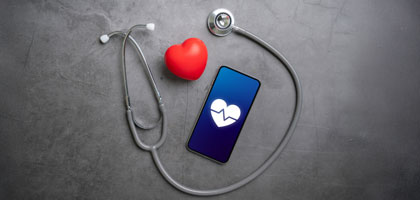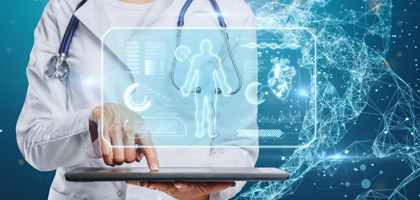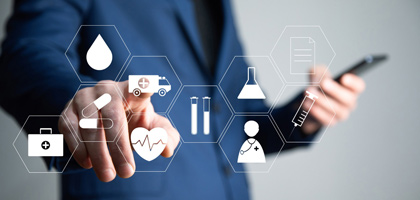
Insights
The Importance of FHIR Standard
The Importance of FHIR Standard
FHIR (Fast Healthcare Interoperability Resources) is a standard for electronic exchange of healthcare information. It leverages existing logical and theoretical models to provide a regular, easy-to-implement, and rigorous mechanism for exchanging data between healthcare applications.
Health records are increasingly being transferred to the digital environment. Patients' electronic health records must be understandable, accessible and discoverable as they move around the healthcare ecosystem. In addition, data must be structured and standardized to support automated clinical decision support applications and other machine-based processes.
FHIR aims to facilitate implementation without sacrificing integrity. This standard leverages existing logical and theoretical models to provide a regular, easy-to-implement, and rigorous mechanism for exchanging data between healthcare applications.
FHIR solutions are built from modular parts called Resources. These resources can be easily installed in working systems that solve real-world clinical and administrative problems. FHIR is suitable for a wide range of use. FHIR can be used in mobile phone applications, cloud communications, EHR-based data sharing, server communication in large corporate healthcare providers and much more.
Why is the FHIR Standard Important?

Mobile API applications and FHIR represent the future of interoperability. So what are API's? API's are sets of requirements that govern how applications communicate and interact with each other. An API is an interface that gives developers access to a proprietary software application.
API's normalizes all incoming requests and data from any healthcare system, doctor, patient or medical device, making them suitable FHIR resources. FHIR is a very attractive application because it uses an infrastructure based on modern web services. With this feature, FHIR enables the exchange of very specific information such as the lab results of the systems. This is a huge convenience for patients, healthcare professionals and providers.
Today, healthcare IT must always be patient centered. At this stage, interoperability is the cornerstone of the patient-centered approach. Because timely and effective information exchange is critical in patient care delivery. This is one of the points where FHIR is of great importance. Additionally, this secure, access-based free movement and data sharing is essential to helping patients maintain and manage their health. Government agencies may require an application to use FHIR for data collection.
Essential Benefits of FHIR

• Customization is free for use and there are no restrictions.
• Supports RESTful architectures - seamless exchange of information using messages or documents, and service-based architectures.
• XML or JSON is a data transmission format.
• It can be applied quickly and easily. It is highly application oriented.
• EHR vendor is independent of healthcare system or other for-profit healthcare organizations.
• The open source FHIR server is called HAPI FHIR and can be implemented by anyone.
Practical Uses for FHIR Standard
Personal Health Records
EMR (Electronic Medical Record) System provides a RESTful API that allows patients to access their own medical records via a common web portal of mobile app. In this example Patient will be the Resource type. It will provide demographic information to the client. However only a portion of the PHR is even in the 1 EMR System. It includes office visits, a medical summary, current medications, known allergies, but does not include updates to this data from clinicians outside of the system. There are multiple specialists, out-of-network EMR’s.
Document Sharing
One common way to integrate healthcare information from a variety of sources is to build a repository of documents around a patient record. Building a repository of documents allows for less stringent alignment around policy, procedures and record-keeping/informatics standards. FHIR provides an equivalent functionality to XDS (Cross Enterprise Document Sharing).
In addition, you can get detailed information about securing private health data by reading our article titled Tips for Securing Private Health Data See you on different topics.
Source: https://bit.ly/35wYcqz









